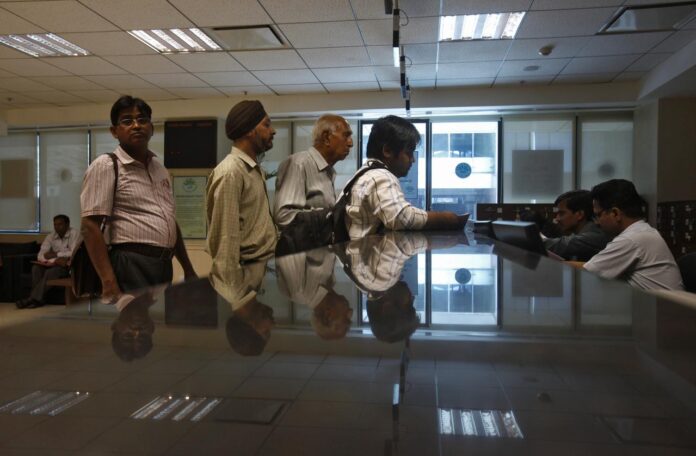MUMBAI/KOLKATA: India’s tax officials are facing a taxing issue.
Prime Minister Narendra Modi’s government wants them to collect 17pc more indirect taxes this year as New Delhi seeks to shore up revenues amid a sharp economic slowdown. The target has been maintained even though Modi recently approved a massive cut in corporate taxes, which are part of direct taxes, and warned officers not to harass businesses in their drive to collect revenue.
Over a dozen tax officials interviewed by Reuters said they are stuck between a push to meet unrealistic collection targets, which influence their appraisals and transfers, and the fear of being accused of over-zealousness if they crack down on evasion.
Critics say Modi’s demands of his tax officials are symptomatic of the confusion surrounding his government’s economic policies, and that the bungling has contributed to a slowdown in growth.
Twenty-two top-level tax department officers have opted for voluntary retirement so far this year and around 34 did so in 2018, according to data provided by Bhaskar Bhattacharya, vice president of the Income Tax Gazetted Officers’ Association.
Bhattacharya was unable to provide comparative data but said bureaucrats ditching jobs usually considered prestigious and powerful was rare.
“Even seasoned officers after working for 25-30 years cannot take this pressure anymore,” he said. “There are applications for voluntary retirement coming in one after the other despite the fact that there is no voluntary retirement or golden handshake scheme in the department.”
The Central Board of Direct Taxes (CBDT) did not respond to requests for data and comment on the resignations.
The CBDT, the Finance Ministry and the Prime Minister’s Office did not respond to questions about tax targets and alleged harassment by tax officials.
While only a small fraction of the tax department’s few thousand senior officers have quit, several officials in the tax department said the departures provided a snapshot of broader discontent that has also led to internal transfers as well as resignations among lower-level employees.
“The level of impatience in the government has gone up … Anyone who has any alternate option says: ‘Why should we stay in the department?'” said one officer who has quit the job and plans to go tend the family farm. He said the stress had “become unbearable.”
“The pressure is getting greater. To achieve our targets we are under pressure, so we do some things that we don’t want to do,” said another tax official in northern India.
The two men asked to remain unnamed for fear of reprisals from the government.
Unorthodox tactics being used by the department included asking companies for advance tax payments, as well as delaying refunds, other tax officials said.




